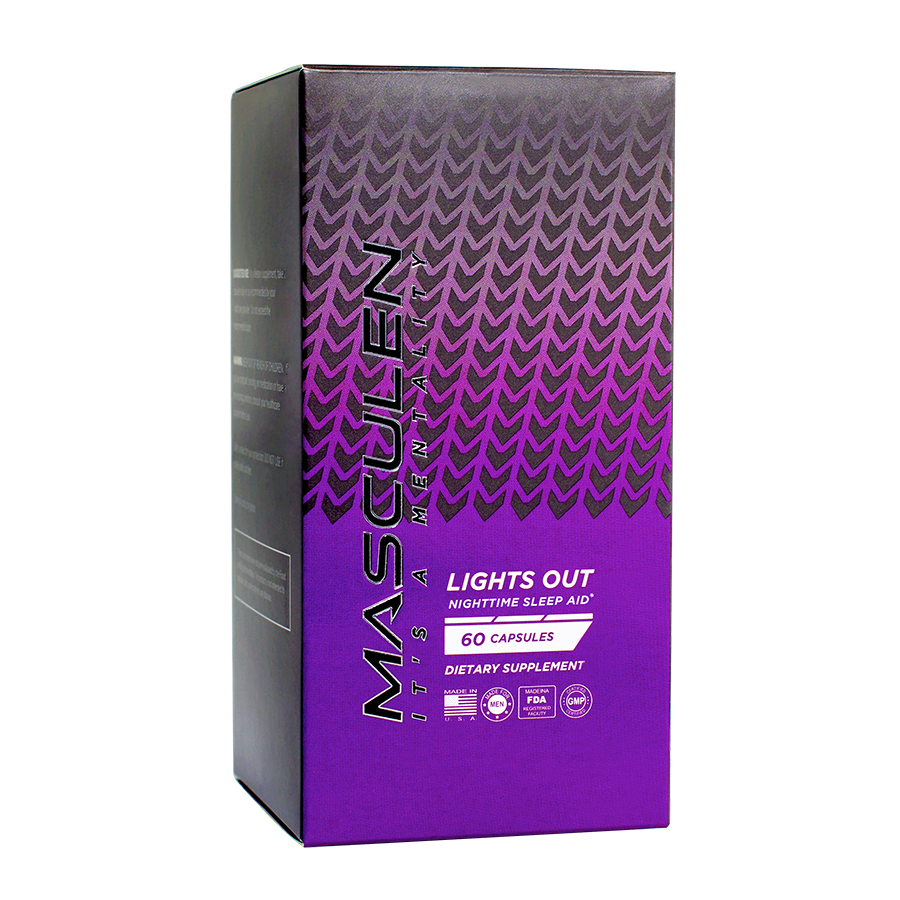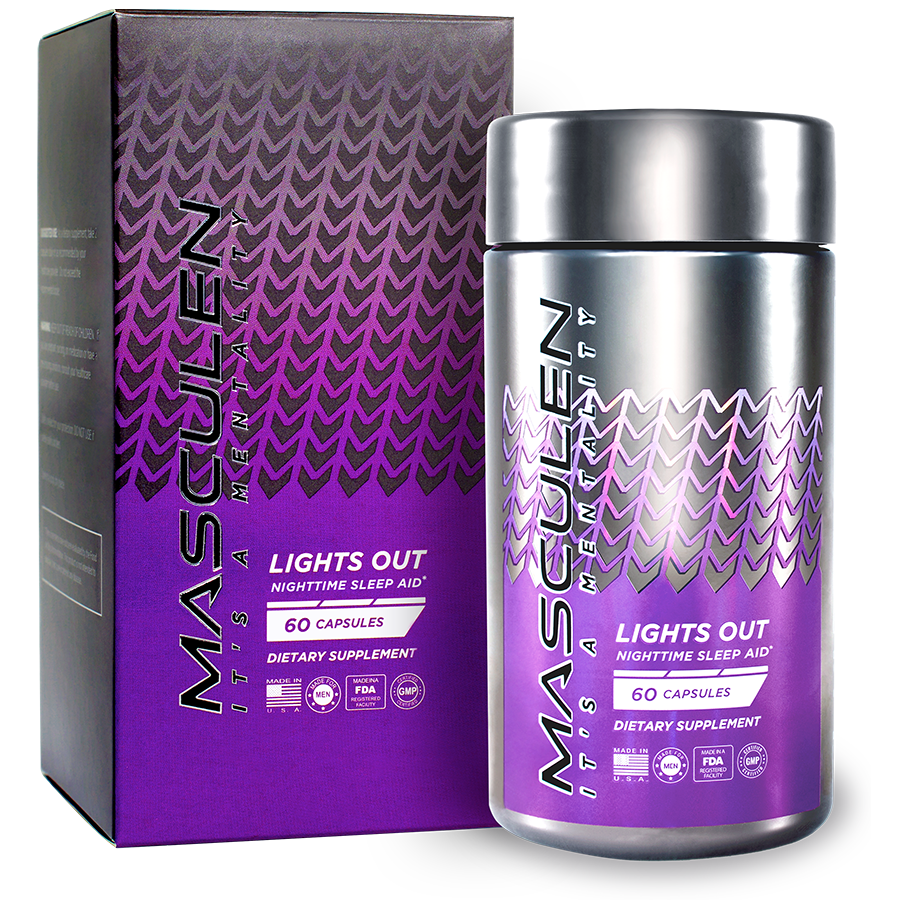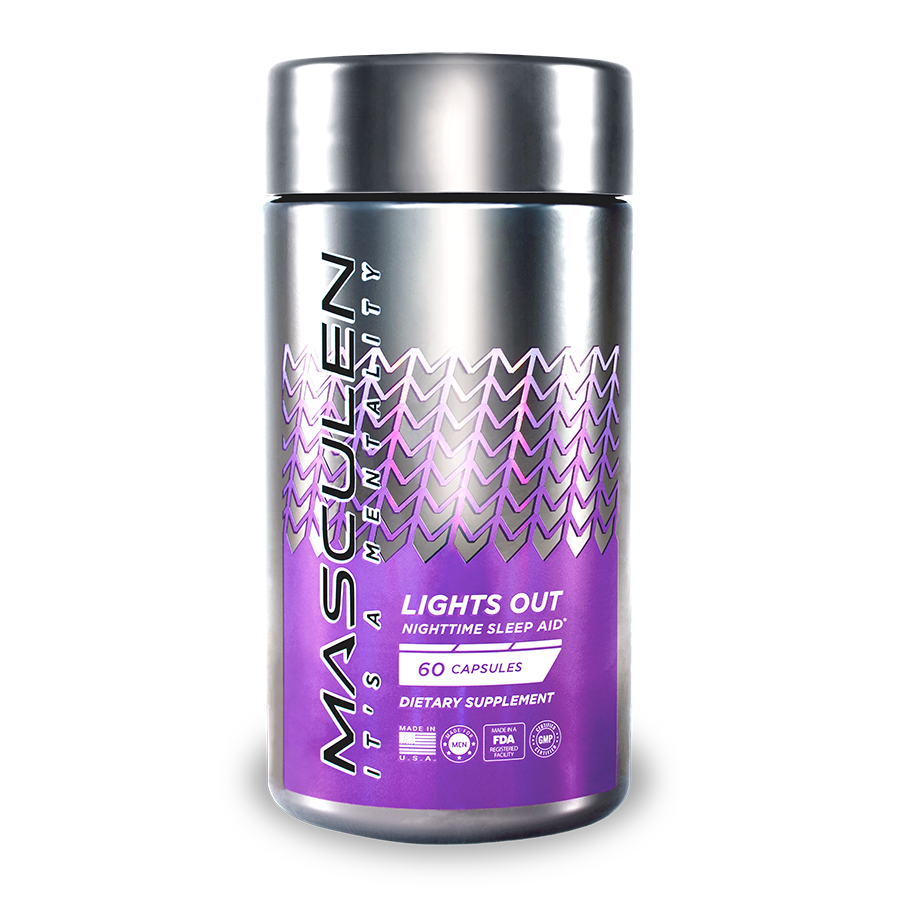Lights Out Nighttime Sleep Aid suggests a product designed to promote better sleep quality and support individuals in falling asleep more easily at night.
-
Improved Sleep Quality: Sleep aids can help individuals fall asleep faster, stay asleep longer, and experience deeper, more restorative sleep, leading to improved overall sleep quality.
-
Reduced Sleep Onset: For individuals who have difficulty falling asleep (sleep onset insomnia), sleep aids can promote relaxation and reduce the time it takes to fall asleep, allowing for a smoother transition into sleep.
-
Calming and Relaxing: Many sleep aids contain ingredients with calming and relaxing properties, such as melatonin, valerian root, or chamomile, which can help reduce stress, anxiety, and racing thoughts at bedtime.
-
Non-Habit Forming Options: Some sleep aids are designed to be non-habit forming, meaning they can be used occasionally without risk of dependency or withdrawal symptoms.
-
Convenience: Sleep aids are often available in various forms, including capsules, tablets, liquid formulations, and even gummies, making them convenient and easy to use.
-
Supports Shift Work and Jet Lag: Sleep aids can be beneficial for individuals who experience disruptions to their sleep-wake cycle due to factors like shift work or jet lag, helping to reset the body’s internal clock and promote more regular sleep patterns.
-
Improved Daytime Functioning: Better sleep quality at night can lead to improved cognitive function, mood regulation, and overall daytime functioning, allowing individuals to feel more alert, focused, and productive during the day.
-
Potential Side Effects: Some individuals may experience side effects from sleep aids, such as drowsiness, grogginess, dizziness, headaches, or gastrointestinal discomfort. It’s essential to be aware of potential side effects and monitor how the body responds to the sleep aid.
-
Dependency Risk: While many sleep aids are designed to be non-habit forming, there is still a risk of psychological dependency if used regularly over an extended period. It’s essential to use sleep aids sparingly and address underlying sleep issues through healthy sleep habits and lifestyle changes.
-
Interaction with Medications: Sleep aids may interact with certain medications or supplements, potentially increasing the risk of side effects or reducing the effectiveness of medications. Individuals should consult with a healthcare professional before using sleep aids, especially if they are taking other medications.
-
Masking Underlying Issues: While sleep aids can provide temporary relief from sleep disturbances, they do not address the underlying causes of poor sleep, such as sleep disorders, stress, or lifestyle factors. It’s essential to address these underlying issues for long-term sleep health and well-being.
-
Tolerance: With prolonged use, some individuals may develop a tolerance to the effects of sleep aids, requiring higher doses to achieve the same level of effectiveness. This can increase the risk of side effects and dependency.
-
Cost: The cost of using sleep aids regularly can add up over time, especially if using branded or specialized formulations. It’s important to consider the financial implications of long-term use.
-
Daytime Impairment: While sleep aids can promote better sleep at night, they may also cause residual drowsiness or impairment the next day, affecting cognitive function, reaction times, and overall daytime performance.

Benefits of Lights Out Nighttime Sleep Aid
-
Improved Sleep Quality: One of the primary benefits of using a nighttime sleep aid is the potential to improve overall sleep quality. Sleep aids can help individuals fall asleep faster, stay asleep longer, and experience deeper, more restorative sleep cycles.
-
Reduced Sleep Onset: Sleep aids can be particularly helpful for individuals who have difficulty falling asleep (sleep onset insomnia). By promoting relaxation and reducing the time it takes to fall asleep, these products facilitate a smoother transition into sleep.
-
Enhanced Relaxation: Many sleep aids contain ingredients with calming and relaxing properties, such as melatonin, valerian root, or chamomile. These ingredients help reduce stress, anxiety, and racing thoughts at bedtime, creating a more conducive environment for sleep.
-
Non-Habit Forming Options: Some sleep aids are designed to be non-habit forming, meaning they can be used occasionally without risk of dependency or withdrawal symptoms. This provides individuals with a safe and effective option for managing occasional sleep disturbances.
-
Supports Shift Work and Jet Lag: Sleep aids can help individuals adjust to changes in their sleep-wake cycle due to factors like shift work or jet lag. By promoting more regular sleep patterns, these products aid in the adjustment process and minimize disruptions to sleep quality.
-
Improved Daytime Functioning: Better sleep quality at night translates to improved cognitive function, mood regulation, and overall daytime functioning. Individuals who use sleep aids may experience increased alertness, focus, and productivity during the day.
-
Enhanced Well-Being: Adequate and restful sleep is essential for overall health and well-being. By promoting better sleep quality, sleep aids contribute to improved physical, mental, and emotional health, leading to a higher quality of life.
-
Convenience and Accessibility: Sleep aids are available in various forms, including capsules, tablets, liquid formulations, and gummies, making them convenient and easy to use. They are readily accessible over-the-counter or through online retailers, providing individuals with a practical solution for managing sleep disturbances.
How To Use Lights Out Nighttime Sleep Aid
Here are some general guidelines on how to use All Night Energy Booster supplements effectively:
-
Read the Instructions: Start by carefully reading the instructions provided on the packaging or accompanying leaflet. Pay attention to the recommended dosage and any specific usage guidelines.
-
Take Before Bed: Typically, sleep aids should be taken 30 minutes to an hour before bedtime. This allows the ingredients to take effect by the time you’re ready to sleep.
-
Dosage: Follow the recommended dosage provided by the manufacturer. Do not exceed the recommended dose unless advised by a healthcare professional.
-
Stay Consistent: For best results, use the sleep aid consistently each night. Establishing a bedtime routine can help signal to your body that it’s time to wind down and prepare for sleep.
-
Limit Stimulants: Avoid consuming caffeine or other stimulants in the hours leading up to bedtime, as they can interfere with the sleep-inducing effects of the aid.
-
Create a Relaxing Environment: Combine the use of the sleep aid with other relaxation techniques, such as dimming the lights, reducing screen time, and engaging in calming activities like reading or listening to soothing music.
-
Consultation: If you have any underlying health conditions, are pregnant or breastfeeding, or are taking medications, consult with a healthcare professional before using “Lights Out Nighttime Sleep Aid” to ensure it’s safe and appropriate for you.
-
Monitor Effects: Pay attention to how your body responds to the sleep aid. If you experience any adverse effects or changes in sleep patterns, discontinue use and consult with a healthcare professional.

Frequently Asked Questions
What is Lights Out Nighttime Sleep Aid?
This question seeks to understand the purpose and function of the product.
How does Lights Out Nighttime Sleep Aid work?
Users may want to know about the mechanisms of action behind the sleep aid and how it promotes better sleep.
What are the ingredients in Lights Out Nighttime Sleep Aid?
Individuals often inquire about the specific ingredients and their potential effects on sleep.
Is Lights Out Nighttime Sleep Aid safe to use?
This question addresses concerns about the safety and potential side effects of the sleep aid.
How should I take Lights Out Nighttime Sleep Aid?
Users may want to know about the recommended dosage and timing for optimal effectiveness.
Will Lights Out Nighttime Sleep Aid make me feel groggy in the morning?
Individuals may be concerned about residual drowsiness or impairment the next day after using the sleep aid.
Can I take Lights Out Nighttime Sleep Aid with other medications or supplements?
Users often inquire about potential interactions between the sleep aid and other medications or supplements they may be taking.
Is Lights Out Nighttime Sleep Aid suitable for vegetarians/vegans?
This question pertains to the suitability of the product for individuals with specific dietary preferences or restrictions.
How long does it take for Lights Out Nighttime Sleep Aid to work?
Individuals may want to know how soon they can expect to feel the effects of the sleep aid after taking it.
Can I use Lights Out Nighttime Sleep Aid every night?
Users may seek guidance on the appropriate frequency of use to avoid dependency or tolerance.
Final Thoughts of Lights Out Nighttime Sleep Aid
Lights Out Nighttime Sleep Aid can be a helpful tool for individuals struggling with sleep difficulties or looking to improve the quality of their sleep. By promoting relaxation, reducing sleep latency, and supporting deeper, more restorative sleep cycles, this aid aims to provide a natural solution for achieving better sleep outcomes.
